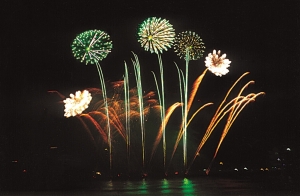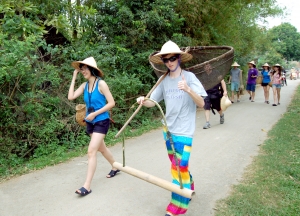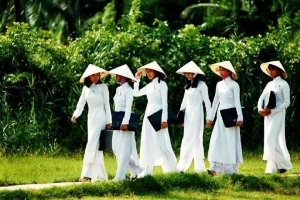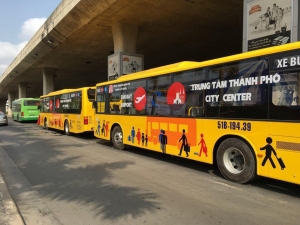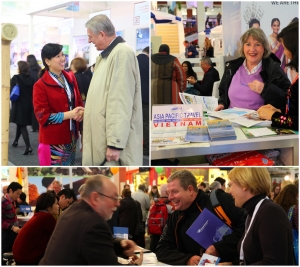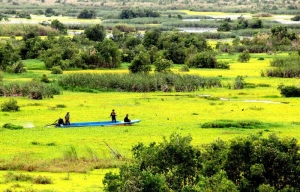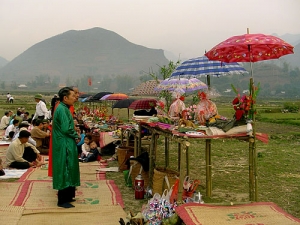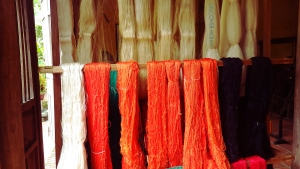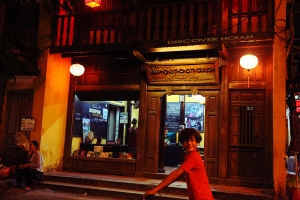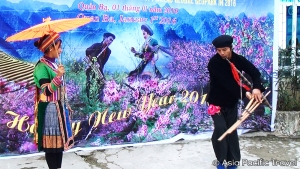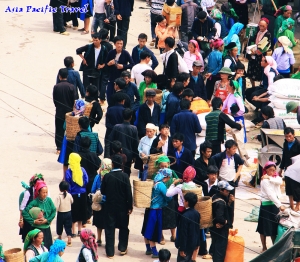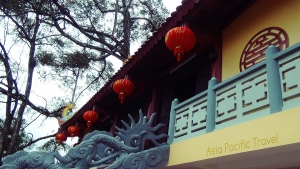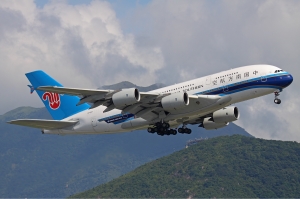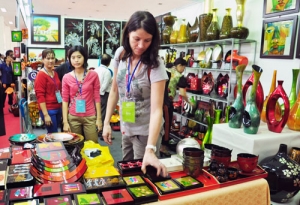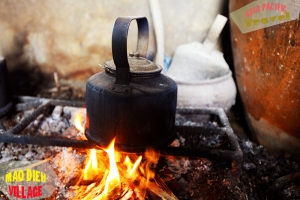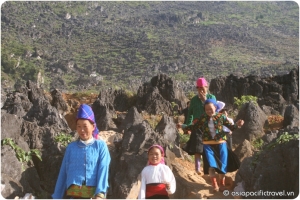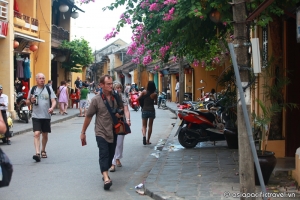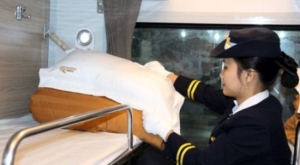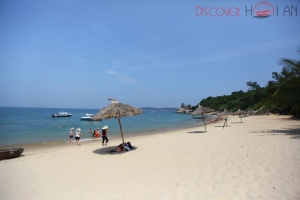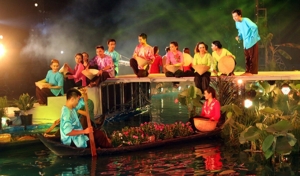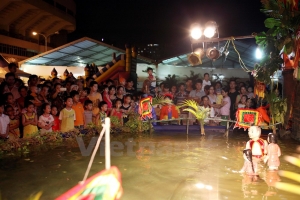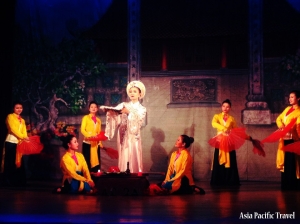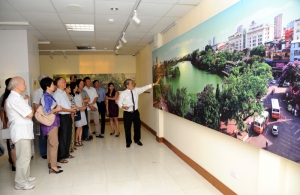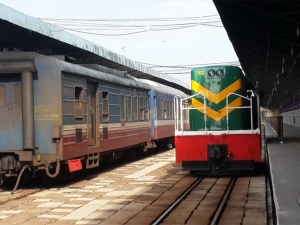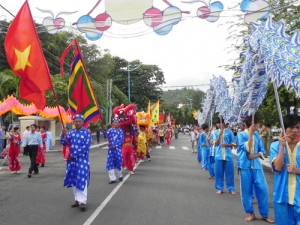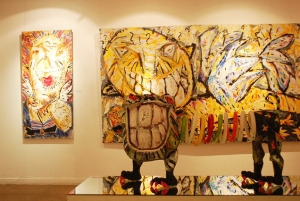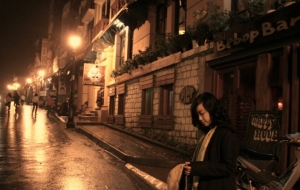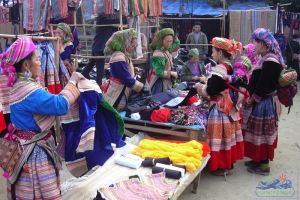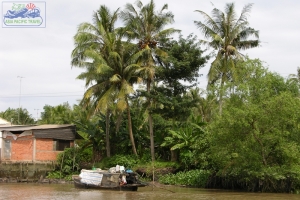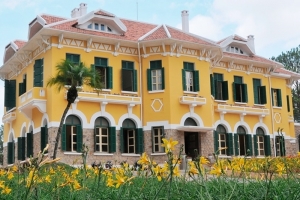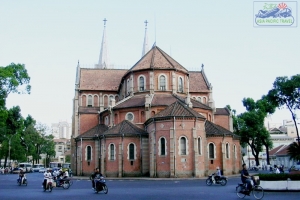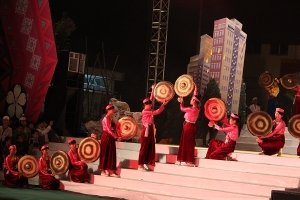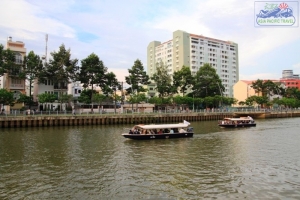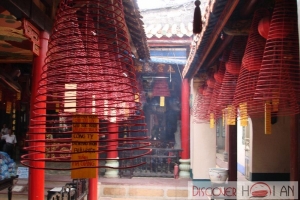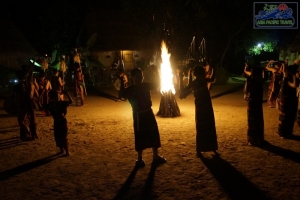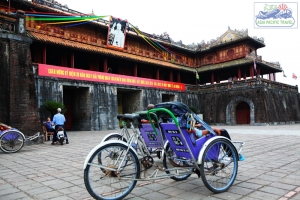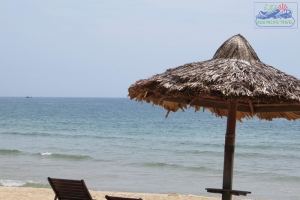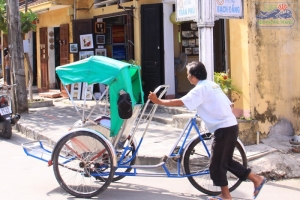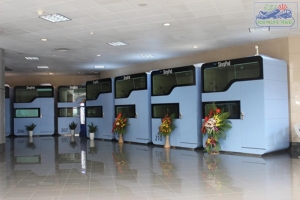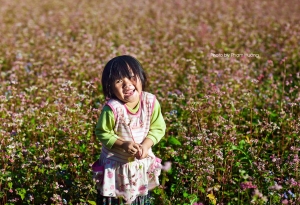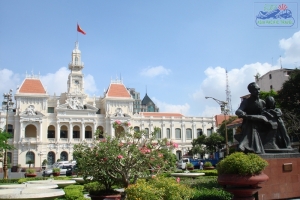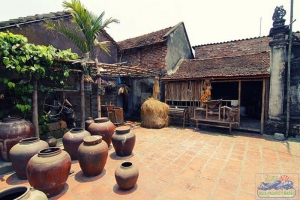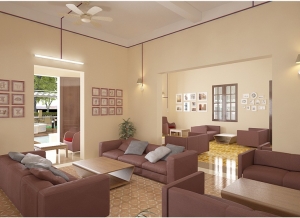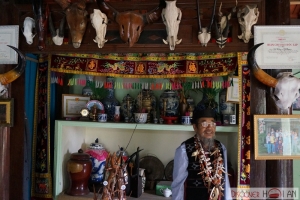Non-verbal communication plays an important role in Vietnamese society, sometimes to accompany and reinforce linguistic symbols, sometimes as a substitute for words. Visitors in Vietnam tourism will be interested in this type of communication, non-verbal behaviors and their meaning in Vietnamese culture when talking with Vietnamese people.
In a previous article, it was pointed out that respect is the cornerstone of interpersonal relationships in Vietnamese society. Respect is conveyed by the use of special terms of address and certain stylistic devices. But respect is also expressed by nonverbal behavior. A Vietnamese student who sits quietly and listens attentively to the teacher wants to express respect to his teacher. This behavior has often been misinterpreted by the American teacher as passivity and non-responsiveness. It is also out of respect that the Vietnamese student avoids eye contact with the teacher when speaking or being spoken to. By American standards, a person acting in this way would appear suspicious, unreliable, or mischievous. In Vietnamese culture, however, looking into somebody's eyes, especially when this person is of a higher status (in age or in social or family hierarchy) or of a different gender, usually means a challenge or an expression of deep passion. The proper respectful behavior is to avoid eye contact in talking who is not an equal or the same sex.
The smile, which is sometimes enigmatic to the American observer, is another nonverbal symbol conveying the feeling of respect in Vietnamese culture. It is used as an expression of apology for a minor offense, for example for being tardy to class, or as an expression of embarrassment when committing an innocent blunder. For the Vietnamese, the smile is a proper response in most situations in which verbal expression is not needed or not appropriate. It is used as a substitute for "I'm sorry", "Thank you" or "Hi!" It is used instead of a ready yes to avoid appearing over-enthusiastic. A smile is also a proper response to scolding or harsh words that one does not harbor any ill feelings toward the interlocutor or that one sincerely acknowledges the mistake or fault committed.
It should be noted that for certain feelings, Vietnamese culture prefers non-verbal communication while American culture is more inclined to use verbal expression. For casual and informal circumstances, feelings of thankfulness or apology are not expressed by verbal expression such as "thank you" or "I'm sorry" but by non verbal, silence or a smile. Parents and teachers never say thanks to their students for a small service, such as closing the window or passing the books around. A smile will do in this case. The person who gives a compliment never expects a "thank you" in return. In Vietnamese culture, a verbal expression of thanks in this case amounts to a lack of modesty from the person who receives the compliment.
A smile or a blush in the face is the proper response to a compliment. If a verbal response is necessary, one would deny the compliment, saying that one does not deserve it. Because of difference in the mediums used to express the feelings of appreciation or apology in the two cultures, misunderstandings have occurred.
The Meaning of Some Patterns of Vietnamese Non-verbal Communication
|
Nonverbal Patterns |
Meaning in Vietnamese Culture |
|
Nodding |
Greeting; affirmative reply; agreement. |
|
Shaking one's head |
Negative reply; disagreement. |
|
Bowing |
Greeting; great respect. |
|
Touching child's head |
Not appreciated, but not offensive. |
|
Avoiding eye contact. |
Showing respect to people senior in age or status or of the opposite sex. |
|
Winking. |
Not decent, especially when directed at people of the opposite sex. |
|
Frowning |
Showing frustration. anger. or worry. |
|
Pouting. |
Disdain. |
|
Smiling. |
Agreement; embarrassment; disbelief; mild disagreement; appreciation; apology. |
|
Shaking hands. |
Friendly greeting between men (but not the elderly); not customary between women or between a man and a woman; acceptable between a Vietnamese woman and non-Vietnamese man. |
|
Palm of right hand out, fingers moving up and down several times. |
"Come here." Not used to people senior in age or status. |
|
Middle finger crossing over forefinger or forefinger crossing over middle finger with the other fingers closed over the palm. |
Obscene gesture. |
|
Middle finger pointing, other fingers closed. |
No meaning. |
|
Thumb down, other fingers closed. |
No meaning. |
|
Thumb upright, other fingers closed. |
No meaning. |
|
Forefinger and top of thumb meet to form circle, other fingers upright. |
"Zero." Poor quality. |
|
Palm of right hand facing oneself, forefinger crooked and moving back and forth. |
Offensive to adults; threatening to children. |
|
Holding hands with or putting an arm over the shoulder of a person of the same sex. |
Friendly gesture, no sexual connotation |
|
Holding hands with or putting an arm over the shoulder of a person of the opposite sex. |
Not usually done in public. |
|
Crossing arms. |
Sign of respect. |
|
Placing one or both hands in the pockets or on the hips while talking. |
Arrogance, lack of respect. |
|
Patting a person's back, especially those senior in age or status. |
Disrespect. |
|
Pointing to other people while talking. |
Disrespect, threatening. |
|
Whistling at performers. |
Displeasure. |
|
Putting one's feet on a table or sitting on a desk while talking. |
Rude |



